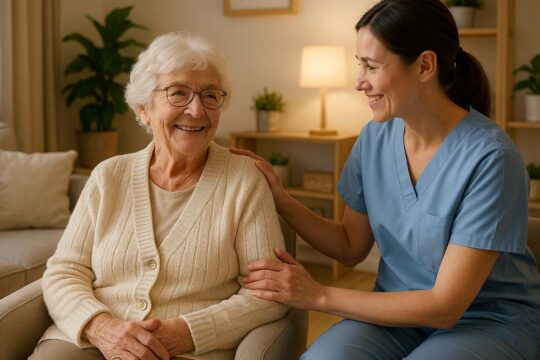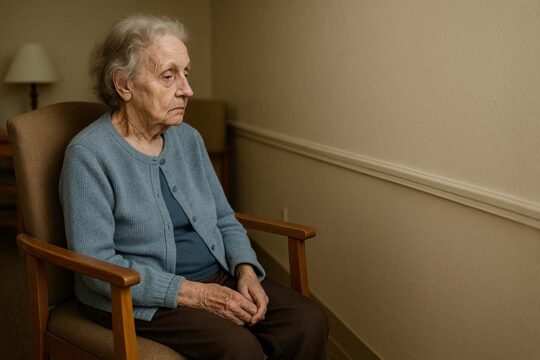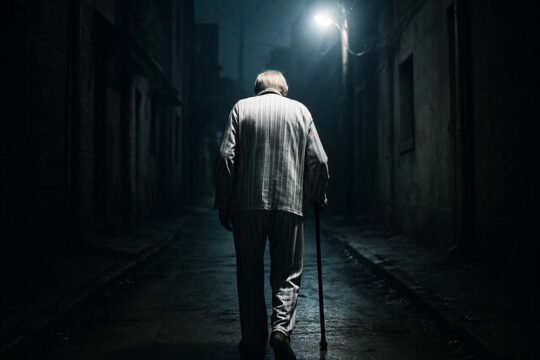
Effects of Loneliness in Elderly
What Are the Effects of Loneliness in Elderly?
At times, we have all felt the sting of loneliness, but the elderly can feel the ramifications stronger as they feel isolated. Because loneliness is an emotional state, it manifests differently in various people. The inability to maintain satisfying interactions with others is often cited as a key factor in the development of lonely feelings.
Loneliness is the social equivalent of physical pain. It even activates the same brain pathways involved in processing emotional responses to physical pain.
Feeling lonely and disconnected from others, like physical pain, is a sign that we need to take care of ourselves by seeking the safety and comfort of companionship. Learn how loneliness can impact the elderly and how to find a solution.
How does loneliness impact the elderly physically?
Loneliness and social isolation put elderly adults at risk for high blood pressure, heart disease, obesity, a weakened immune system, anxiety, depression, cognitive decline, Alzheimer’s disease, and death. Living alone, health issues, disability, and hearing loss can lead to social isolation and loneliness. Major life tragedies like a spouse’s death raise seniors’ risk of emotional and social isolation.
Lack of Communication
Seniors cut off from communication with family and friends back home can exacerbate loneliness. Isolation can have a negative impact on senior health, including a higher risk of mental decline and death. Loneliness can have a negative impact on one’s physical health in a variety of ways.
Serious Illnesses
Isolated seniors are more likely to develop serious illnesses such as chronic lung disease, arthritis, and decreased mobility. As a way of coping with loneliness, seniors may engage in other unhealthy behaviors such as excessive alcohol consumption, binge eating, and smoking. Seniors who are lonely may spend more time indoors and avoid physical activity. This lack of exercise can increase the risk of high blood pressure, heart disease, and other problems.
How to Help Senior Loneliness
A variety of measures can be taken to help seniors cope with loneliness and isolation. Among these are improved transportation, efforts to better integrate seniors into their communities, and the use of technology to help them connect with others. Help your parents transition into later life at Stellar Care, where they never need to be alone.
How Does Loneliness Affect the Elderly Emotionally?
Loneliness absolutely affects elderlies’ emotions and their physical well-being, but it also puts them at risk of dying sooner. Here are the different ways loneliness can affect the senior members of our community.
Physical Health
While the first negative health effect on our list almost goes without saying, it demonstrates the wide range of loneliness’s impact on senior health. Physical problems will wreak havoc on a person’s ability to be social and ruin their self-esteem and confidence. Problems with walking, seeing, hearing, and memory loss may make a person less likely to be social.
Emotional Health
For years they were a very necessary part of the world, with many people and responsibilities depending on them. And while everyone talks about retiring and living their best life, that rarely happens. Now that they have retired, they find out their body does not want to cooperate in all the activities they hoped to enjoy. Further, the responsibilities that weigh them down now seem like their only reason to live. Emotionally, the feelings they expected to feel, such as relief, relaxation, and joy, turn into loneliness as the rest of the world continues filling obligations, and they do not.
Mental Health
A person’s mental health can suffer if they are lonely and have felt this way for a lengthy period of time. Loneliness has been linked to a host of negative mental health outcomes, including but not limited to low mood, anxiety, and self-esteem; disturbed sleep; and high levels of stress. Another negative health effect of loneliness in seniors is a higher risk of death.
Social Health
As with people of all ages, the health effects of social isolation and loneliness are significant but frequently overlooked. Having strong bonds with other people is crucial to our emotional and physical well-being. To combat the growing epidemic of loneliness and social isolation among the elderly, new methods are coming out to keep them social. Some methods include interventions, community support groups, improved transportation, and more.
Spiritual Health
Feelings of emptiness, isolation, and rejection are common symptoms of loneliness. Lonely people frequently have a strong desire for social interaction, but they find it more challenging to establish meaningful relationships due to their emotional state of isolation. One’s spirituality is formed and guided by their own life experiences and those of the societies in which they find themselves. Essentially, when the elderly become isolated, they cannot enjoy fellowship with those in their spiritual life and, thereby, reduce their faith, causing even more loneliness.
Health Risks of Loneliness in Elderly
Loneliness rears its ugly head in many ways, especially in health for elderly. Starting with physical problems, here are a few warning signs of isolation:
- – Inflammation
- – Heightened stress response
- – Impaired immune system
- – Poor activity levels
- – Reduced appetite
- – Impaired sleep
- – Suicide attempts
- – Cardiovascular disease
- – Hypertension
- – Obesity
- – Depression
- – Substance use
- – Cognitive decline
- – Dementia progression
- – Stroke
A lack of belonging, which includes loneliness, is a major risk factor for suicide.
Social support, on the other hand, is a major protective factor against suicide and depression. Seniors should not be left alone if they have or do feel suicidal, as they need help to prevent another attempt.
Increased Mortality Risk
Another negative health effect of loneliness in seniors is a higher risk of death. Both social isolation and loneliness are associated with an increased risk of mortality in adults over 52 years of age. One theory proposed that this result was due to seniors who live alone or lack social contacts being less likely to seek medical attention if acute symptoms develop due to a lack of prompting.
Susceptibility to Elder Abuse
Research shows a link between social isolation and higher rates of elder abuse. While they are not sure of the reason, when an elderly person is kept away from others, their caregivers tend to abuse them. This vulnerability, regardless of the cause, is cause for concern.
How to help an elderly loved one who is experiencing loneliness
Helping a lonely senior can seem a daunting task, especially because of the negative health correlations. However, helping often takes much less effort than expected. Here are a few ways to help the senior in your life avoid loneliness
Visit
The easiest way to prevent loneliness is to keep your parents from being alone. Visit them often or at least call in and check on them every day. A simple phone call can cheer up their entire day and remind them they are loved and wanted.
Bring People They Love
While your elderly parent loves you, they need more people in their lives. If possible, bring in other people they love to help give them more than one avenue for social needs. Consider bringing aunts, uncles, old friends, church family, etc.
Give them a Reason to Live
Often, seniors feel like they are drifting in life from their productive years to retirement and then to death. Encourage them to try new things, enjoy activities, or shake up their routine. Remind them of the things they said they wanted to do when they retired, such as travel, learn a second language, volunteer, etc.
Surround Them with Peers
For many seniors, simply having more people around them is enough to alleviate loneliness. Some options include visits with friends and family, participating in community senior activities, volunteering, and moving to an independent or assisted living community.
Other Tips for Reducing Senior Isolation and Loneliness
Exercise offers one of the best avenues to combat loneliness as it starts at the root — self-confidence. Seniors can benefit greatly from exercise because it increases their heart rate and blood flow, improves their range of motion and strength, and boosts their confidence, so they are more likely to go out and mingle with others.
Encourage communication between different generations. Time spent with the young can breathe new life into a person’s regular routine. Nevertheless, establishing rapport is not always simple. Remind your elderly loved ones that they have much to share and encourage them to strike up a conversation with other members of the family.
Many seniors rely on technology like Alexa and FaceTime to keep in touch with family and friends. Loneliness in the elderly can be avoided with the help of modern technologies such as cell phones for talking to friends, tablets for video chatting with grandchildren, and virtual home assistants. Pets can also help to reduce loneliness as they act as in-person companions with unconditional love.
Finally, health and happiness can be improved through interaction with other residents in a senior community. It is more difficult to feel lonely in a senior living community or a neighborhood with many retirees because of the constant presence of friends, neighbors, and caretakers. Contact Stellar Care today and make an active choice to combat loneliness and isolation for your parents.
Related Articles
Discover the key differences between retirement homes and assisted living to help you choose the right care for your loved one’s needs.
Learn the risks of leaving a dementia patient alone, legal responsibilities, care strategies, and how to plan for their safety.
Learn why dementia patients wander at night, how to prevent it, and when memory care is the safest option for your loved one in San Diego.
Compare memory care and assisted living, from services and costs to safety and staffing, to find the right senior care in San Diego.



